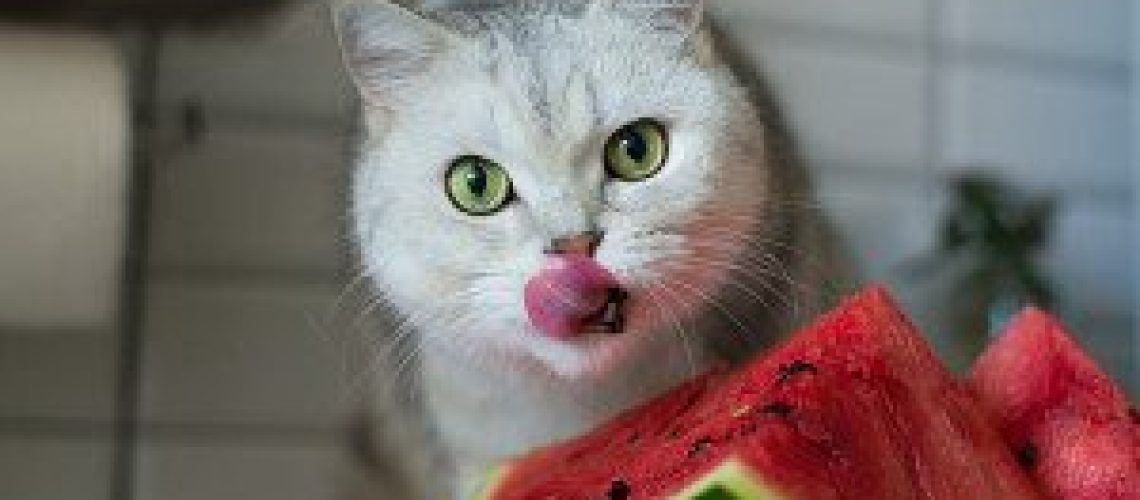Are you a cat owner looking to treat your furry friend to something special? Well, we've got some purr-fectly delicious news for you! Exploring the world of tasty treats that your cat can safely enjoy is not only a fun and exciting adventure, but it also comes with a plethora of benefits. Understanding which fruits are safe for your feline companion can help diversify their diet, provide essential nutrients, and even promote better overall health. So, get ready to discover a whole new way to pamper your whiskered pal while keeping them happy and healthy. After all, who said treats were just for humans? It's time to indulge your cat's taste buds in the most delightful way possible!
Key Takeaways:
- Fruits can be a healthy addition to your cat's diet, but not all fruits are safe for them to eat.
- Some safe fruits for cats include apples, bananas, blueberries, and watermelon.
- It's important to remove any seeds, pits, or stems from the fruit before offering it to your cat.
- Fruits should only be given as an occasional treat and should not replace a balanced cat food diet.
- If you notice any negative reactions or digestive issues after feeding your cat fruits, consult with a veterinarian.
Tasty and Safe Fruit Treats for Your Cat
Why Cats Love Fruit Treats
Cats are known for being picky eaters, but many of them have a sweet tooth. That's why they often enjoy the taste of fruits. Fruits can provide a refreshing and tasty treat for your furry friend, while also offering some health benefits. Just like humans, cats can benefit from the vitamins and minerals found in fruits.
The Importance of Choosing Safe Fruits for Your Cat
While fruits can be a great addition to your cat's diet, it is important to choose safe options. Some fruits can be toxic to cats and cause digestive issues or other health problems. It's crucial to do your research and ensure that the fruits you offer your cat are safe for consumption.
Additionally, it's essential to remember that fruits should only be given as treats and not as a substitute for a balanced cat food diet. Cats have specific dietary requirements, and their main source of nutrition should come from high-quality cat food.
Which Fruits Are Safe for Cats to Eat?
Fruits That Are Safe for Cats
- Apples: Remove the seeds and core before giving small pieces of apple to your cat.
- Bananas: Offer small slices of banana as an occasional treat.
- Blueberries: These can be given whole or mashed into your cat's food.
- Mangoes: Remove the skin and pit, then offer small pieces as an occasional treat.
Fruits That Should Be Avoided
- Grapes: Grapes can be toxic to cats and should never be given.
- Citrus Fruits: The high acidity in citrus fruits can upset a cat's stomach.
- Cherries: Cherries contain pits that can be choking hazards or toxic to cats.
The Health Benefits of Feeding Fruits to Your Cat
Feeding fruits to your cat in moderation can provide some health benefits. Many fruits are rich in vitamins, minerals, and antioxidants that can support your cat's overall well-being. For example:
- Vitamin C from fruits like oranges and strawberries can boost your cat's immune system.
- Potassium found in bananas can help maintain healthy heart function.
- Fiber from fruits like apples and blueberries can aid digestion and prevent constipation.
Guidelines for Introducing Fruits into Your Cat's Diet
When introducing fruits to your cat's diet, it's important to start slowly and observe their reaction. Here are some guidelines to follow:
- Introduce one fruit at a time and wait for a few days before introducing another.
- Offer small portions of fruit as treats, not as a main meal.
- Observe any signs of digestive upset or allergic reactions such as vomiting or diarrhea.
- If your cat shows any negative reactions, discontinue feeding that particular fruit.
Safer Fruit Options for Cats and Their Benefits
Some safer fruit options for cats include:
Berries
Berries like blueberries and raspberries are safe for cats. They are low in calories and high in antioxidants, which can help support your cat's immune system.
Watermelon
Watermelon is a hydrating fruit that cats can enjoy in small amounts. It contains vitamins A and C, as well as lycopene, which is beneficial for overall health.
Potential Risks and Allergic Reactions from Certain Fruits in Cats
While most fruits are safe for cats, some can cause potential risks or allergic reactions. It's important to be aware of these risks:
Grapes and Raisins
Grapes and raisins can be toxic to cats and may cause kidney failure. Even a small amount can be dangerous, so it's crucial to avoid giving them to your cat entirely.
Allergic Reactions
Cats, just like humans, can have allergies. Some cats may have an allergic reaction to certain fruits such as strawberries or citrus fruits. If you notice any signs of an allergic reaction such as itching, swelling, or difficulty breathing, stop feeding the fruit immediately and consult a veterinarian.
Serving Fruits to Your Cat: Preparation and Safety Tips
When serving fruits to your cat, it's important to take some precautions:
Remove Seeds and Pits
Seeds and pits from fruits like apples or cherries should always be removed before offering them to your cat. These parts can pose choking hazards or contain toxins that are harmful to cats.
Wash Fruits Thoroughly
Before feeding any fruit to your cat, make sure you wash it thoroughly with water. This helps remove any pesticides or dirt that might be present on the surface of the fruit.
Offer Small, Bite-Sized Pieces
Cats have small mouths, so it's best to offer them small, bite-sized pieces of fruit. This makes it easier for them to chew and swallow without any difficulty.
Monitor Your Cat's Intake
While fruits can be a healthy addition to your cat's diet, moderation is key. Too much fruit can cause digestive upset or an imbalance in their overall nutrition. Always monitor the amount of fruit you give your cat and ensure it remains a small part of their diet.
Benefits of Feeding Fruits to Your Cat
Improved Digestion
Feeding fruits to your cat can have numerous benefits, one of which is improved digestion. Fruits are rich in fiber, which helps regulate bowel movements and prevent constipation. Additionally, the natural enzymes present in fruits aid in breaking down food, making it easier for your cat to digest. However, it's important to note that not all fruits are suitable for cats. Some fruits like grapes and raisins can be toxic and should be avoided at all costs.
Boosted Immune System
Including fruits in your cat's diet can also help boost their immune system. Fruits such as oranges and strawberries are packed with vitamin C, which is known for its immune-boosting properties. Vitamin C helps strengthen the immune system, making your cat less prone to illnesses and infections. However, moderation is key when feeding fruits to your cat as too much vitamin C can lead to digestive issues.
Healthy Skin and Coat
Another benefit of serving fruits to your cat is promoting healthy skin and coat. Certain fruits like blueberries and watermelon contain antioxidants that help combat free radicals, which can damage the skin cells. These antioxidants also contribute to a shiny and lustrous coat for your feline friend.
Overall, incorporating a variety of safe fruits into your cat's diet can provide them with essential nutrients that support their overall health.
Tips for Preparing Fruits for Your Cat
Wash Thoroughly
Before serving any fruit to your cat, it's crucial to wash it thoroughly. This removes any dirt or pesticides that may be present on the surface. Use clean water and gently rub the fruit under running water while ensuring no residue remains.
Remove Seeds and Pits
Certain fruits, such as apples and peaches, have seeds or pits that can be harmful to cats if ingested. It's important to remove these before offering the fruit to your furry friend. Seeds and pits can pose a choking hazard or contain toxic substances that could harm your cat.
Peel When Necessary
While some fruits like bananas and oranges can be served with their peel intact, others may need to be peeled before feeding them to your cat. Fruits with tough or thick peels, such as watermelon or pineapple, should be peeled to prevent any digestive issues or discomfort for your cat.
Remember, always introduce new fruits gradually into your cat's diet and monitor their reaction. If you notice any signs of allergies or digestive upset, consult with your veterinarian immediately.
Safe Fruits for Cats
Here is a list of safe fruits that you can include in your cat's diet:
- Apples (without seeds)
- Bananas
- Blueberries
- Cantaloupe (remove seeds and rind)
- Cranberries (in small amounts)
- Mangoes (remove pit and skin)
- Oranges (in moderation)
- Peaches (remove pit)
- Pears (remove seeds and core)
- Pineapple (remove skin and tough core)
- Raspberries
- Strawberries
Remember to always feed fruits in moderation as treats rather than replacing a balanced feline diet.
In conclusion, it is important to remember that while cats can enjoy certain fruits as treats, moderation is key. Always consult with a veterinarian before introducing any new foods into your cat's diet to ensure their safety and well-being.
What fruits are safe for cats to eat?
Cats can safely consume certain fruits and vegetables in moderation, such as strawberries, melon, bananas, pears, blueberries, nectarines, green beans, peas, bell peppers, sweet potatoes, and cauliflower. However, since cats are primarily meat eaters, it is recommended to primarily feed them their regular diet whenever possible.
What is a cat's favorite fruit?
Indeed, cats are able to consume cantaloupe as it provides them with beneficial nutrients such as vitamin C, beta carotene, fiber, and antioxidants. Cats are often fond of this fruit due to its resemblance to the scent of meat proteins. It is recommended to offer small pieces or slices of the fruit's flesh to cats, while avoiding the rind.
What sweet treats do cats like?
Cats have a total of 470 taste receptors, none of which are able to detect sweetness. If your cat shows interest in sweet treats, it is probably because of other factors such as the fat content, smell, or texture. Cats do not have a natural preference for sweet flavors.
Can cats have yogurt?
Indeed, cats can consume plain and unsweetened yogurt. Despite the fact that many cats are intolerant to lactose, the lactose found in yogurt is easier for cats to digest due to the presence of live bacteria, which aids in its breakdown.
What is a cat's favorite flavor?
Cats have a preference for umami taste, which is found in foods like tomatoes, mushrooms, and parmigiana cheese, that humans also enjoy. Umami is the main driver of food preference for cats, similar to how sweetness is for us. Interestingly, cats have a more sensitive sense of umami taste compared to humans.
What vegetable does a cat like?
Great options for vegetables to feed your cat include diced carrots, peas, frozen corn, broccoli, green beans, zucchini, lettuce, spinach, winter squash, and pumpkin. It is recommended to cook these vegetables, preferably by steaming, as cats, like humans, do not have the ability to fully digest the plant cell walls.

















